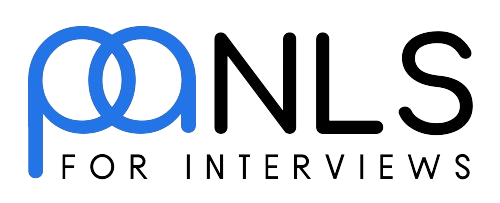Everything you need to know about Interview Fraud and How to Identify them

Companies strive to find the best candidate that could fit the role they are hiring for. However, candidates are resorting to unethical behavior through deceptive practices to secure the role. This leads to hiring unqualified candidates and can create a negative impact on the team and poor job performance. Identifying and mitigating interview fraud is important; it protects the company and the team from its negative impact. In this blog, we will explore everything we need to know about interview fraud and how to identify it. By staying vigilant and implementing methods to mitigate interview fraud, companies and hiring teams can prevent hiring fraud.
What is Interview Fraud?
Interview fraud often happens during the interview process, where candidates commit to deceptive practices. As a result, candidates secure their positions through unethical behavior. Hiring unqualified candidates can negatively impact the company and the team, disrupting productivity and workflow. Additionally, this can lead to poor job performance and an increase in turnover.
It is important to stay vigilant and evaluate the candidate’s requirements thoroughly to avoid hiring unqualified candidates. Above all, implementing methods to prevent interview fraud can save the company time, effort, and resources.
Now, let’s discover the different kinds of fraudulent activities that candidates commit.
What are the different kinds of Interview Fraud?
Let’s discover what kinds of interview fraud the candidates take to secure their position.
Resume Fraud
The resume is one of the steps that some candidates take to secure their position in the company. Candidates can falsify their work experience, educational background, and previous job titles, and fabricate degrees or certificates.
Identity Fraud
Some candidates impersonate another person during the interview process. For instance, candidates have someone qualified to undergo assessments and participate in the interview on their behalf. It could also be vice versa, where candidates use someone else’s identity.
Manipulation of Interview Responses
Candidates can manipulate their responses during the interview, especially when it comes to behavioral assessment. Some candidates prepare a script during interviews and use it to create false information about their skills, capabilities, and experience.
Cheating on Assessments
Candidates also cheat during the assessment, especially when it comes to technical assessments. The cheating could be collaborating with others, using unauthorized resources, or having someone else take the assessment test on their behalf.
Fake Reference
References can help the candidates add more credibility and be worthy of trust. However, certain candidates provide fake references created by their friends, family, or acquaintances to act as former employers. This enables unethical candidates to give a falsified resume to the hiring team and company.
These are a few of the different kinds of interview fraud. It is pivotal to identify these kinds of frauds to prevent hiring unqualified candidates. Now, let’s move on to the methods for identifying these fraudulent activities.
How to Identify Interview Fraud?
In-Depth Resume Verification
It is important to verify the resumes of the candidates thoroughly. Double-checking the candidate’s employment history by contacting previous employers can help us verify their claims. Additionally, verifying their education history and references by contacting the educational institutions and references can help us fact-check their resume.
Identity Verification
As mentioned earlier, some candidates use someone’s identity to complete the assessment test. However, to avoid this from occurring, hiring teams can ask for government-issued ID to verify the identity of the candidates. We can also leverage AI tools to verify the identity of the candidate during the video interview.
Observing of Behaviors
During the interviews, observing candidates can help us identify any red flags. Some candidates’s responses to the questions may seem overly polished and lack details. Additionally, observing the resume of the candidate and their responses might not align, which can be a sign of inconsistencies.
Online Proctoring
During the assessment, leveraging services that can proctor candidates taking assessments can help us identify any unusual and unethical behavior.
Verifying Certificates or Degrees
Candidates must have a credible and reliable certificate or degree, as it is a plus factor for the company. However, there are some cases where candidates fake their certificates or degrees to secure the position. Verifying the certificates or degrees of the candidates by contacting the institutions can help us ensure their authenticity.
These are the methods by which we can identify the fraudulent activities that the candidates are committing. It is important to be observant and fact-check everything in the candidate’s resume and credentials to clarify their authenticity.
Conclusion
In conclusion, a thorough evaluation of the candidate’s information, credentials, and claims is very important. Being observant of their actions and their responses to the questions can help us identify whether their claims are legit. Additionally, understanding the different kinds of interview fraud can help us to be more careful and prevent hiring unqualified candidates. Lastly, learning how to identify fraud can help us prevent hiring unethical candidates. By learning how to identify fraud, we can prevent the negative impact it causes on the team and working environment.
If you want to thoroughly evaluate each candidate and avoid the risk of hiring unqualified candidates, Panls can help! Panls is an interview-as-a-service platform that conducts interviews on your behalf. Additionally, Panls performs a thorough evaluation of each candidate, ensuring a high quality of hires! What are you waiting for? Contact us for a demo now!
